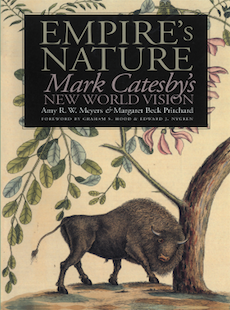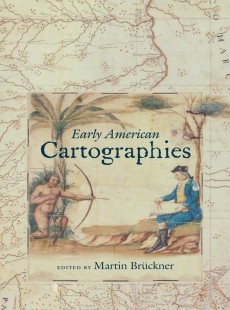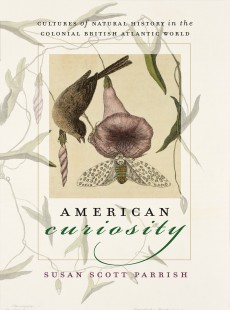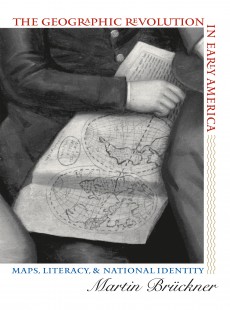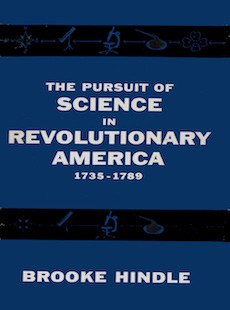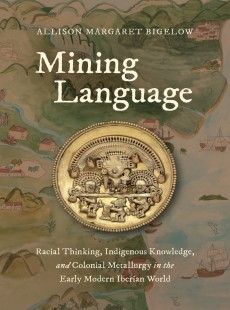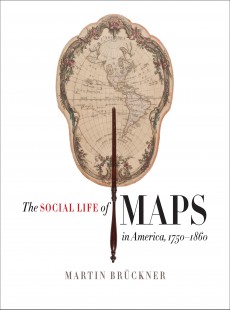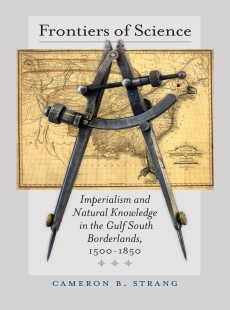
Frontiers of Science
Imperialism and Natural Knowledge in the Gulf South Borderlands, 1500-1850
Cameron B. Strang
 Publisher: Omohundro Institute
Publisher: Omohundro Institute
Imprint: OIEAHC
Published: 08/2018
Pages: 376
Subject: History, Science
Cloth ISBN: 9781469640471
eBook ISBN: 9781469640488
DESCRIPTION
Cameron Strang takes American scientific thought and discoveries away from the learned societies, museums, and teaching halls of the Northeast and puts the production of knowledge about the natural world in the context of competing empires and an expanding republic in the Gulf South. People often dismissed by starched northeasterners as nonintellectuals--Indian sages, African slaves, Spanish officials, Irishmen on the make, clearers of land and drivers of men--were also scientific observers, gatherers, organizers, and reporters. Skulls and stems, birds and bugs, rocks and maps, tall tales and fertile hypotheses came from them. They collected, described, and sent the objects that scientists gazed on and interpreted in polite Philadelphia. They made knowledge.
Frontiers of Science offers a new framework for approaching American intellectual history, one that transcends political and cultural boundaries and reveals persistence across the colonial and national eras. The pursuit of knowledge in the United States did not cohere around democratic politics or the influence of liberty. It was, as in other empires, divided by multiple loyalties and identities, organized through contested hierarchies of ethnicity and place, and reliant on violence. By discovering the lost intellectual history of one region, Strang shows us how to recover a continent for science.
LEARN MORE ABOUT THIS BOOK
ABOUT THE AUTHOR
Cameron B. Strang is assistant professor of history at the University of Nevada, Reno.
AWARDS
Co-winner, Summerlee Book Prize, Center for History and Culture of Southeast Texas and the Upper Gulf South at Lamar University (2019)
REVIEWS
"A mind-bending and deeply important book, Frontiers of Science pulls intellectual history and the history of science in the early American republic away from elite literate men on the East Coast. On the Southern borderlands, the reader meets a striking array of men and women as full characters contributing to global ideas about nature in an imperial age."
--Kathleen DuVal, University of North Carolina at Chapel Hill
"Cameron Strang’s fascinating Frontiers of Science argues that the clash of empires in the colonial and early national American South animated a wide range of knowledge projects, from cartography and astronomy to geology and ethnology. Strikingly, Strang shows that these were not merely the hobbies of elite white men but involved a wide and unruly cast of characters often left out of histories of science in early America."
--Adam Rothman, Georgetown University
"Frontiers of Science is a landmark book that will reorient our understanding of early American science and empire for years to come. Strang brilliantly takes us beyond the laboratories and gardens of the Northeast into the borderlands where knowledge was forged through dramatic encounters between Indians, Africans, and Europeans, profoundly shaping the early Republic."
--James Delbourgo, Rutgers University
“Uses individual case studies to explore the interconnections and intrigue in the Gulf southwest as Americans forced out those competing for control. . . . Recommended.”
--Choice Reviews
“[A] powerful and clear-eyed assessment of both the history and historiography of U.S. science . . . . So carefully and thoroughly researched and situated that it is difficult to know how Strang could have added more to this challenging, crucial contribution to the field.”
--Western Historical Quarterly
“A superbly researched and original history of science in early America.”
--American Historical Review
“Strang unearths enduring legacies of imperialism, slavery, and violence amid a patchwork of shifting allegiances. . . . Frontiers of Science explodes a view of American science drawn from a limited focus on the urban Northeast. . . . A must-read for Americanists and historians of science alike.”
--Reviews in American History
“Among the most ambitious and imaginative studies written so far in this budding field of early American history. . . . It took an especially adventurous and versatile historian to cross the national and linguistic boundaries required to reveal the scope, intensity, and specific contours of imperial dependence on American knowledge.”
--William and Mary Quarterly
“Detailed, comprehensive . . . Frontiers of Science is at once a history of competing empires and of colorful personalities.”
--Journal of Southern History
RELATED TITLES





